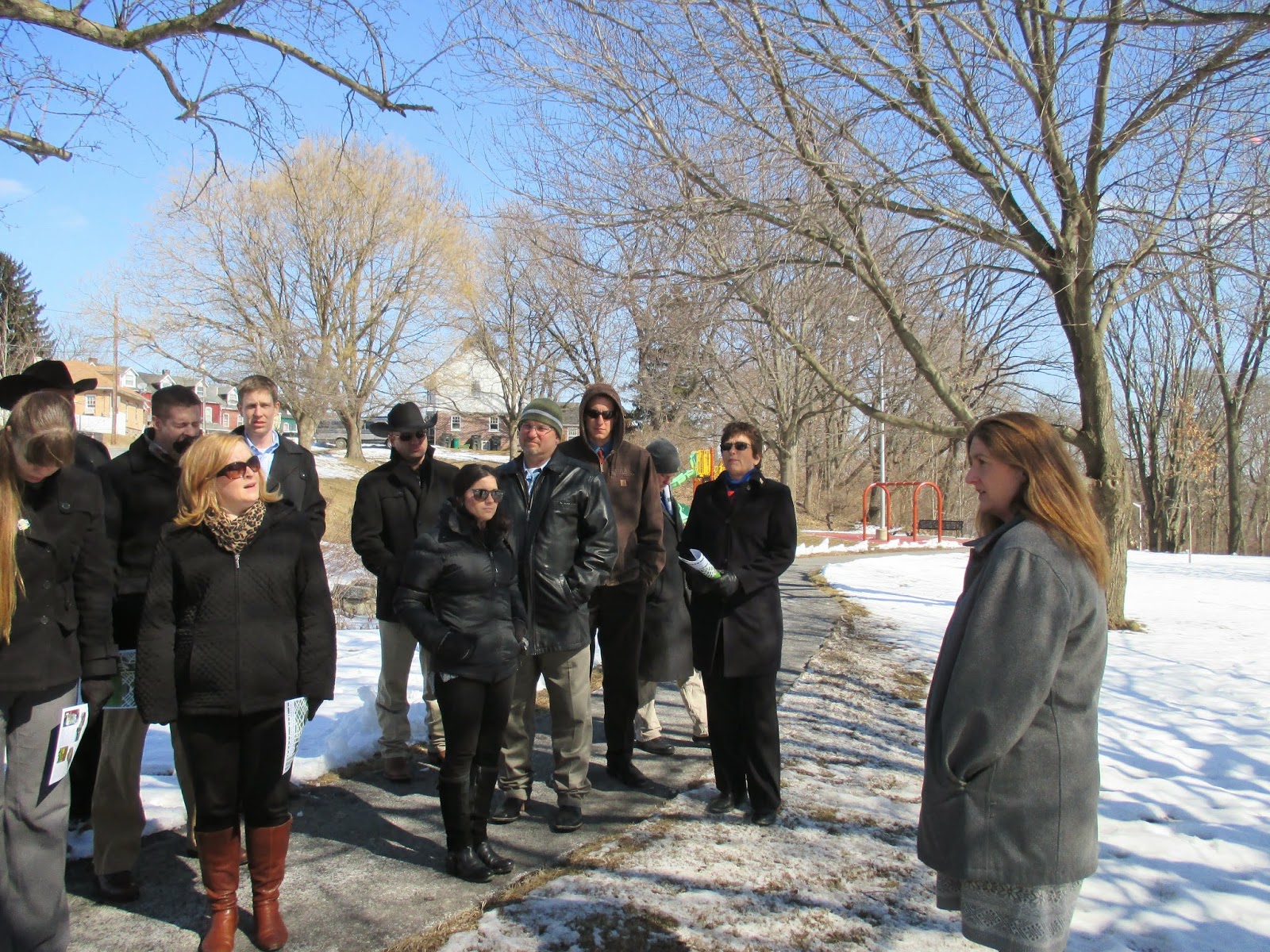Friday, February 27, 2015
It was a mighty early start for the SDARL class this day so
we could enjoy our field trip up in Pennsylvania. The goal of today was to show
the class how farmers producing the same commodities as us, are able to exist
and succeed facing very different and sometimes far more challenging
circumstances. We also caught a glimpse of how a city of 65,000 copes with
similar wastewater regulations as us farmers.
 |
| View from Groff's farm, Holtwood, PA |
Steve Groff is the man
Cedar Meadow Farm was the first stop on the trip and this is
where Steve Groff receives his mail. Who is Steve you ask? He is a crop farmer
as well as a seed producer of cover crops. But what makes Steve worth flying
out to the east coast for? He has marketed a turnip that is very good at
breaking up hardpan and pulling up nutrients out of the soil depths. Steve
travels the nation and world explaining the benefits that cover crops can provide.
 |
| Ruth Ayne-Hocker, PE, City of Lancaster |
 |
| Ms. King and Mrs. Reed-Harry |
 |
| Luke Brubaker and his son Mike, Tony not pictured |
 |
| Solar panels at the barn roof |
 |
| Residential area near the Brubaker Farm |
 | |
| Brubaker Farm: Methane Digester |
The opportunities: They sure appreciate having millions of milk drinking customers in the nearby metros. Those metros are also the challenge. Like the city of Lancaster, Brubaker Farm must deal with the strict Chesapeake Bay regulations. Rural Pennsylvania also doesn’t look like rural South Dakota. We saw new neighborhoods sprawling around the dairy and a paved road that curves right around the barn and through the farm! To keep the noses of the neighbors happy, the farm has proactively chosen to turn the animal waste in to methane and burn it for energy. The left overs from that process is used for fertilizing fields and bedding cattle. Next to no smell. How innovative is that?
Mr. Derek Ingram drove the bus.
Submitted by Dusty Schley


